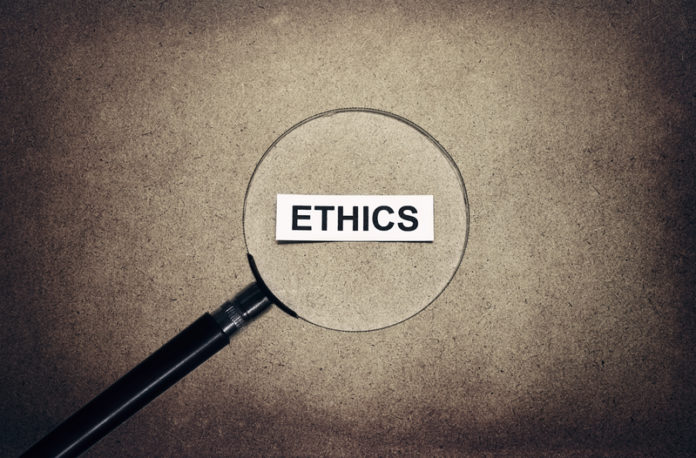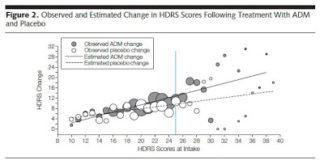Recently, I was sorry to see that the eHealth Code of Ethics, which I helped create back in 2000, was not included in the list of references to an article about trust and credibility of web-based health information. According to the Code, individuals need to be able to judge for themselves the quality of the health information they find on the Internet. Sites should disclose what sources the site or content provider has used, with references or links to those sources.
Any research or effort designed to improve the quality of health information on the Internet must build upon the work already done by the creators of the international eHealth Code of Ethics, which is as relevant today as it was back in 2000.
Click on “Read more >>” for the transcript of this podcast and for links to the code and other related information.
Back in 1996, I created the MEDWEBMASTERS-L Email List, which was a forum for health and medical webmasters to discuss establishing standards for ethical medical publishing on the Internet. The charter for this ad hoc group called on medical Internet developers “to form an association or alliance or at least to develop a professional code of conduct that would set standards for medical publishing on the Internet.”
Shortly afterward, in 1997, members of this listserv established the non-profit Internet Healthcare Coalition. I served as president of the Coalition, which in 2000 convened an “e-Health Ethics Summit” in Washington, DC.
The summit was hosted by the World Health Organization and was attended by a panel of about 50 invited health Internet leaders and pioneers from all stakeholder groups from all over the world. It produced the foundation for a draft eHealth Code of Ethics, which was released 18 February for an online public consultation period which ended on 14 April 2000. The final Washington e-Health Code of Ethics sets forth guiding principles under eight main headings: candor; honesty; quality; informed consent; privacy; professionalism in online health care; responsible partnering; and accountability.
Unfortunately, the Code seems to have been forgotten by the new generation of webmasters and social scientists studying trust and credibility of health information on the Internet. The latest example of this is a paper published in the June, 2017, issue of the Journal of Medical Internet Research.”
The authors of this article did not include the eHealth Code of Ethics in a list of over 100 references that were included in the “systematic literature review,” which formed the basis of the study. This is surprising because the entire eHealth Code of Ethics was published in the same journal back in 2000.
I guess that is ancient history, not worth looking at. But you know what they say about people who ignore history – they are doomed to repeat it. This is unfortunate because the authors of the cited article propose further research. Any such research would benefit from including the eHealth Code of Ethics, in my humble opinion.
The review also failed to mention the HONcode, which was first published in 1995, with the support of the Geneva University Hospitals. Subsequently, when France’s High Health Authority was, by law, required to certify health web sites, the French commission chose the HON Code as the certifying body. Unfortunately, this partnership ended when it was realized that having certification was not changing user behavior.
The goal of the e-Health Code of Ethics is to ensure that people worldwide can confidently and with full understanding of known risks realize the potential of the Internet in managing their own health and the health of those in their care.
For the record, I’d like to read the introduction to the eHealth Code of Ethics.
“The Internet is changing how people give and receive health information and health care. All people who use the Internet for health-related purposes-patients, health care professionals and administrators, researchers, those who create or sell health products or services, and other stakeholders-must join together to create a safe environment and enhance the value of the Internet for meeting health care needs.
“Because health information, products, and services have the potential both to improve health and to do harm, organizations and individuals that provide health information on the Internet have obligations to be trustworthy, provide high quality content, protect users’ privacy, and adhere to standards of best practices for online commerce and online professional services in health care.
People who use Internet health sites and services share a responsibility to help assure the value and integrity of the health Internet by exercising judgment in using sites, products, and services, and by providing meaningful feedback about online health information, products, and services.”
In the future, I hope that research designed to improve the quality of health information on the Internet builds upon the work already done by the creators of the international eHealth Code of Ethics, which is as relevant today as it was back in 2000.
Further Reading:









![6 Digital Tools at the Center of Healthcare Digitalization [INFOGRAPHIC]](http://ec2-54-175-84-28.compute-1.amazonaws.com/pharma-mkting.com/wp-content/uploads/2021/04/6DigitalTools_600px-100x70.jpg)




